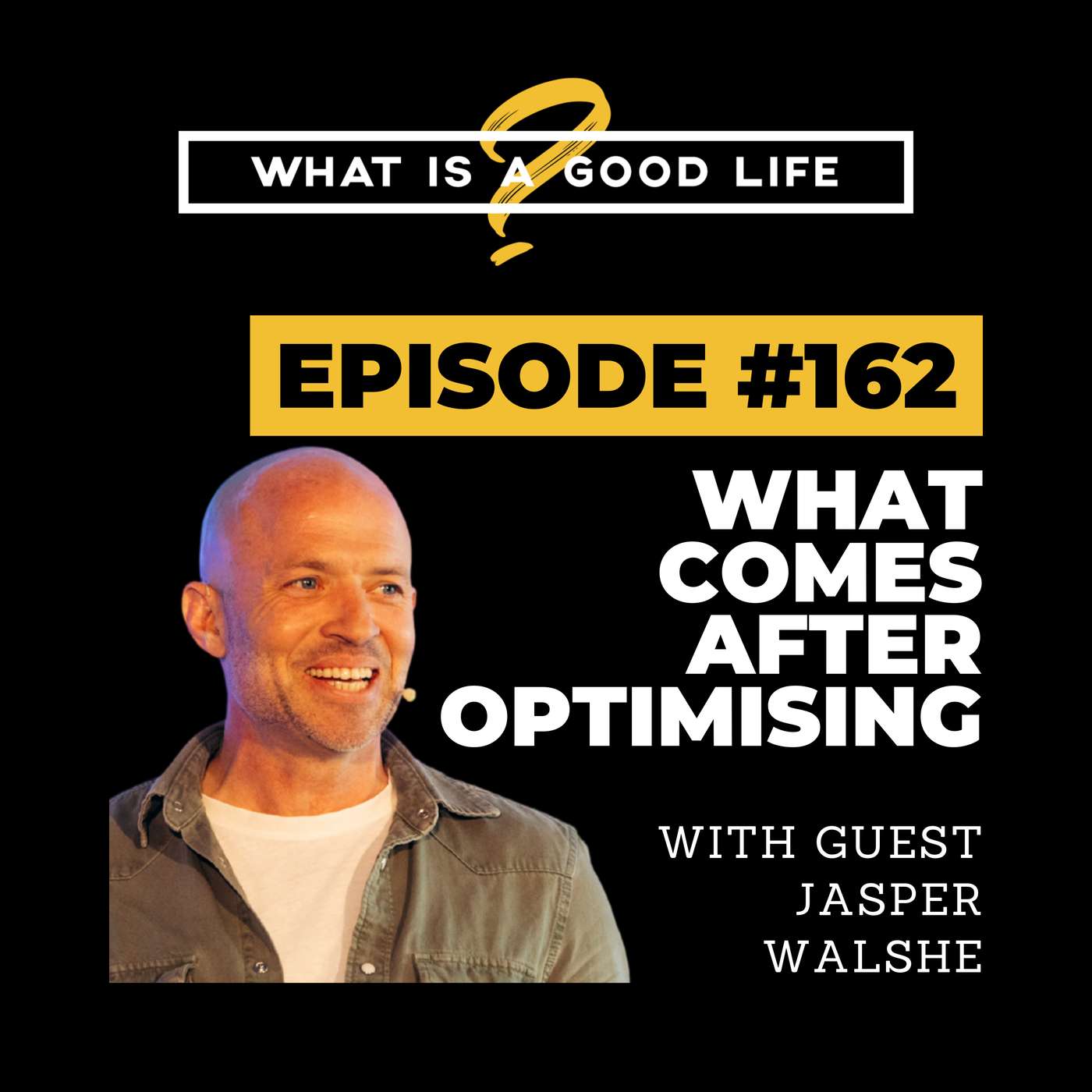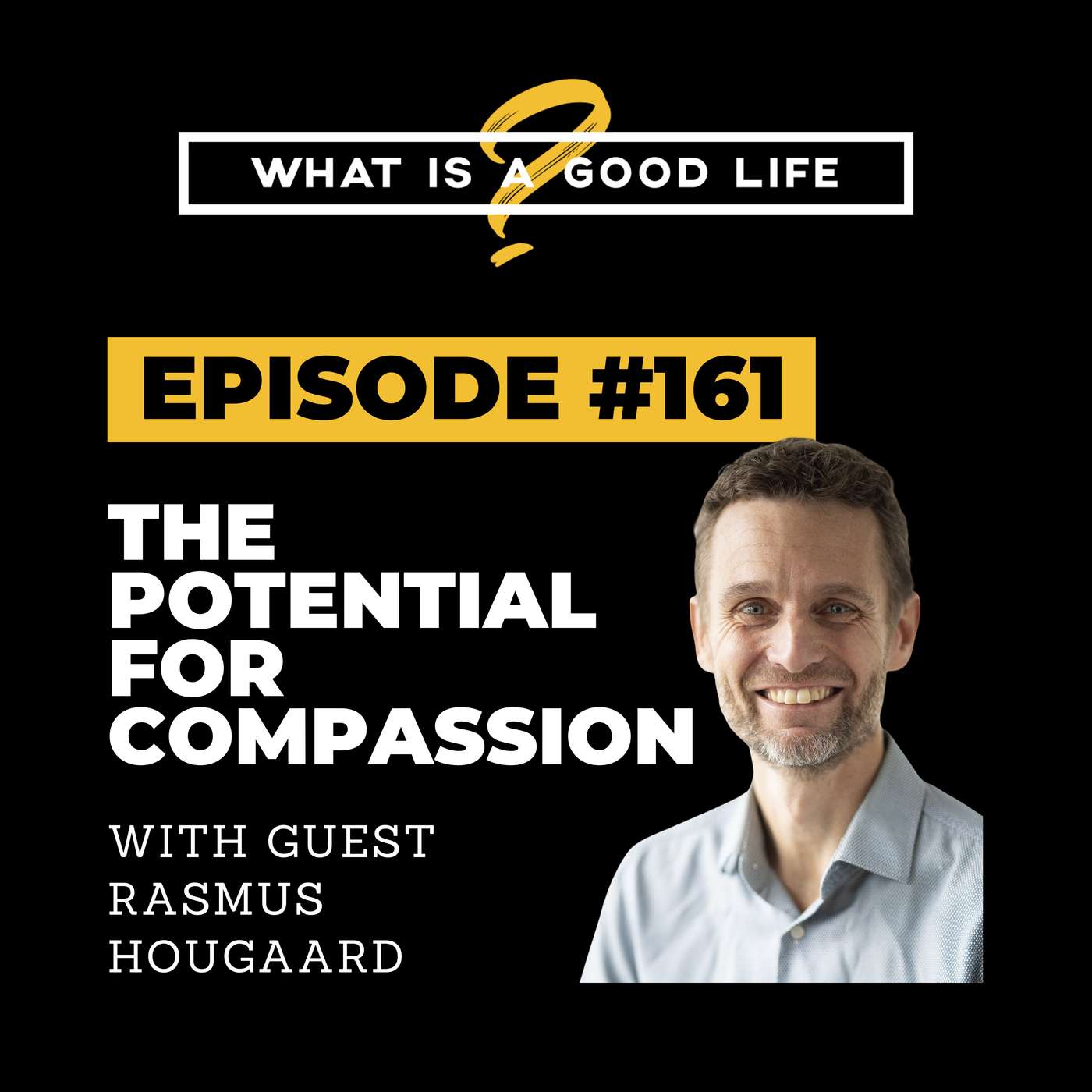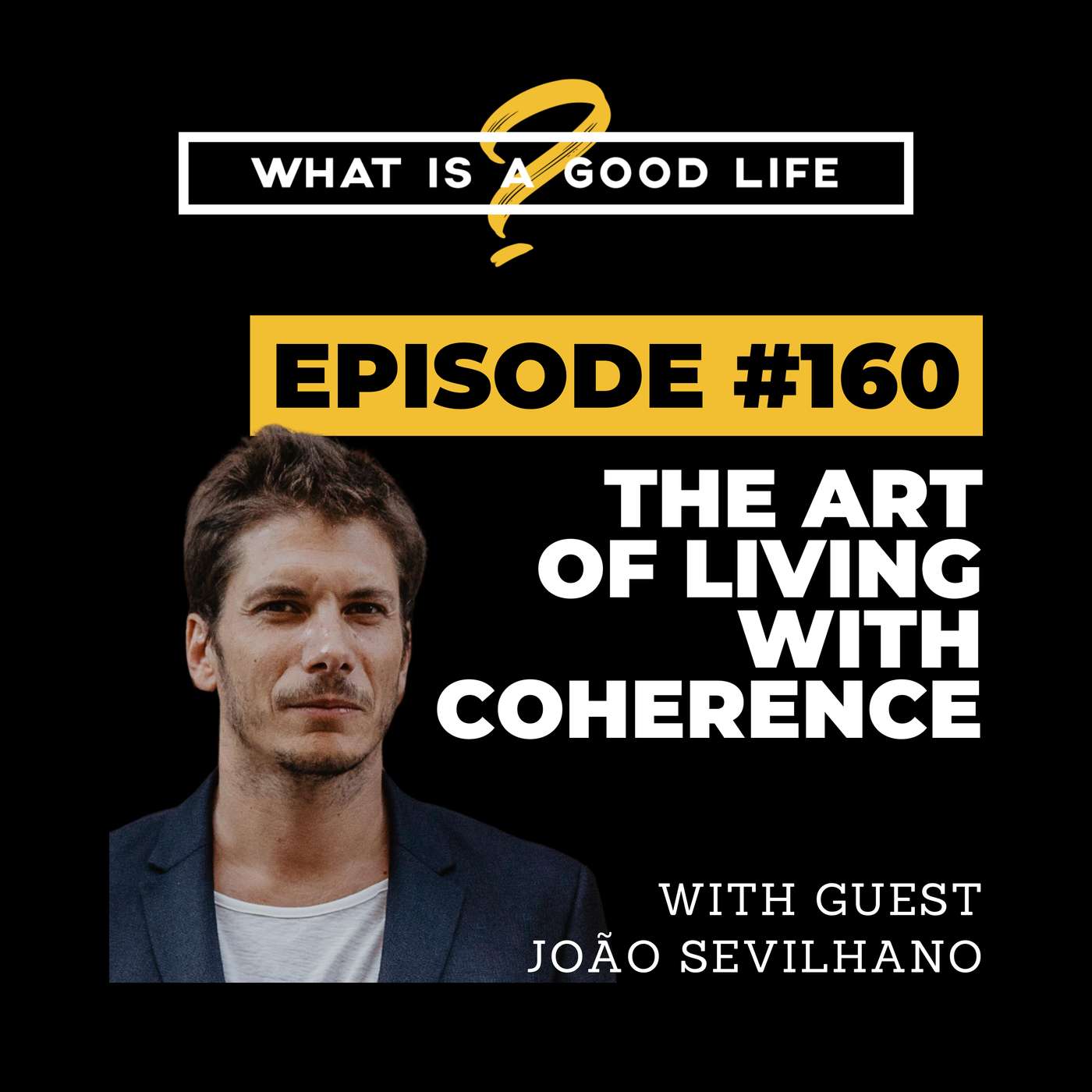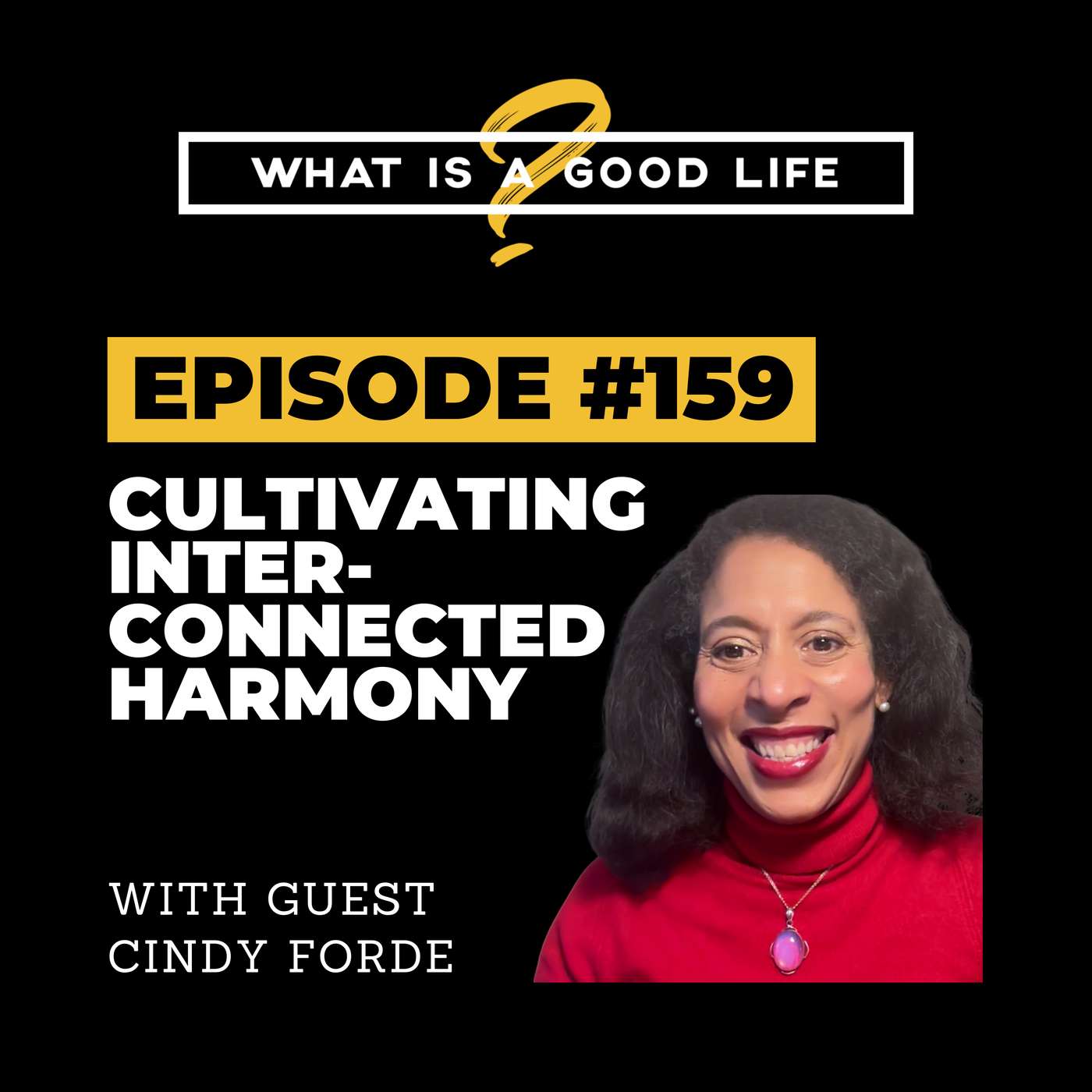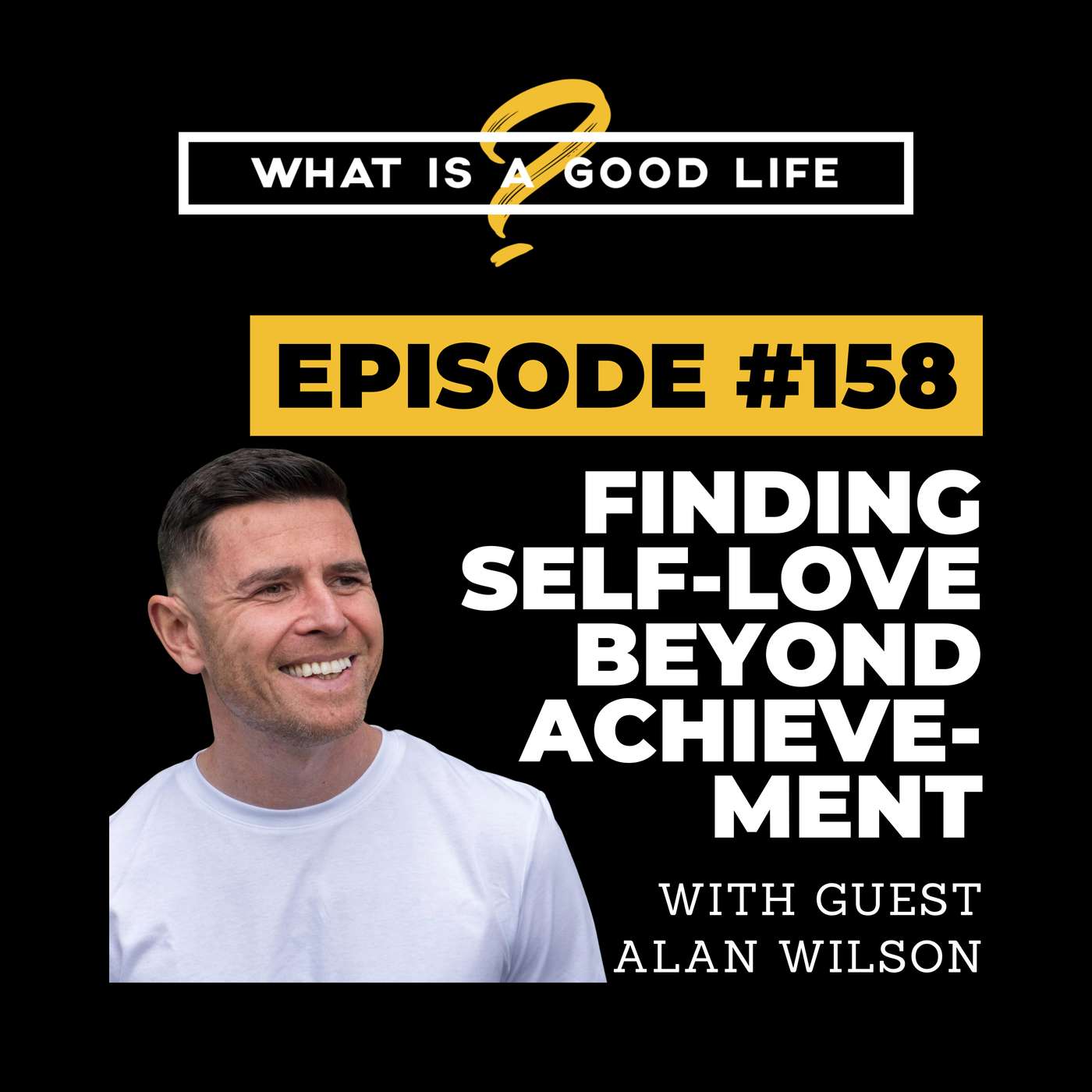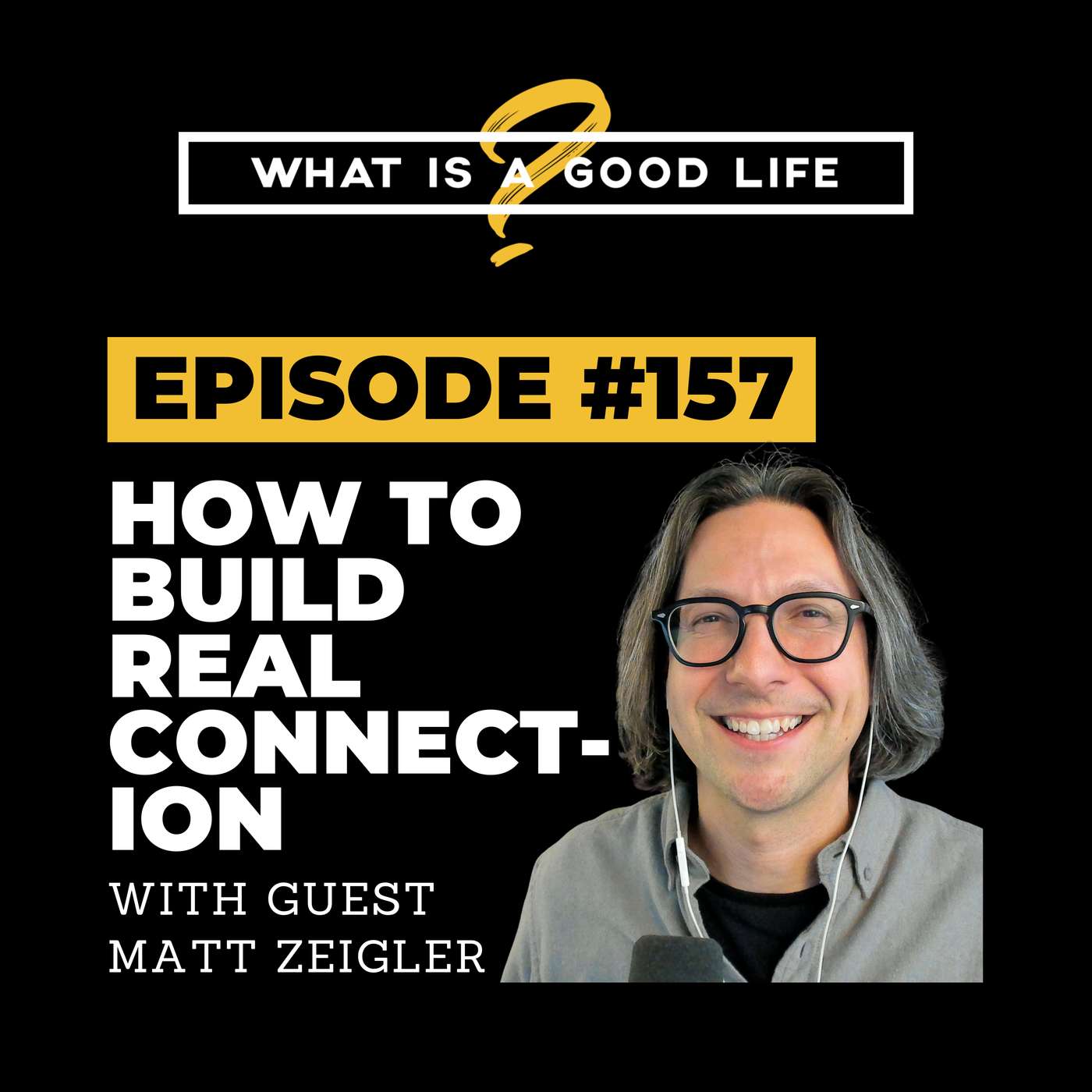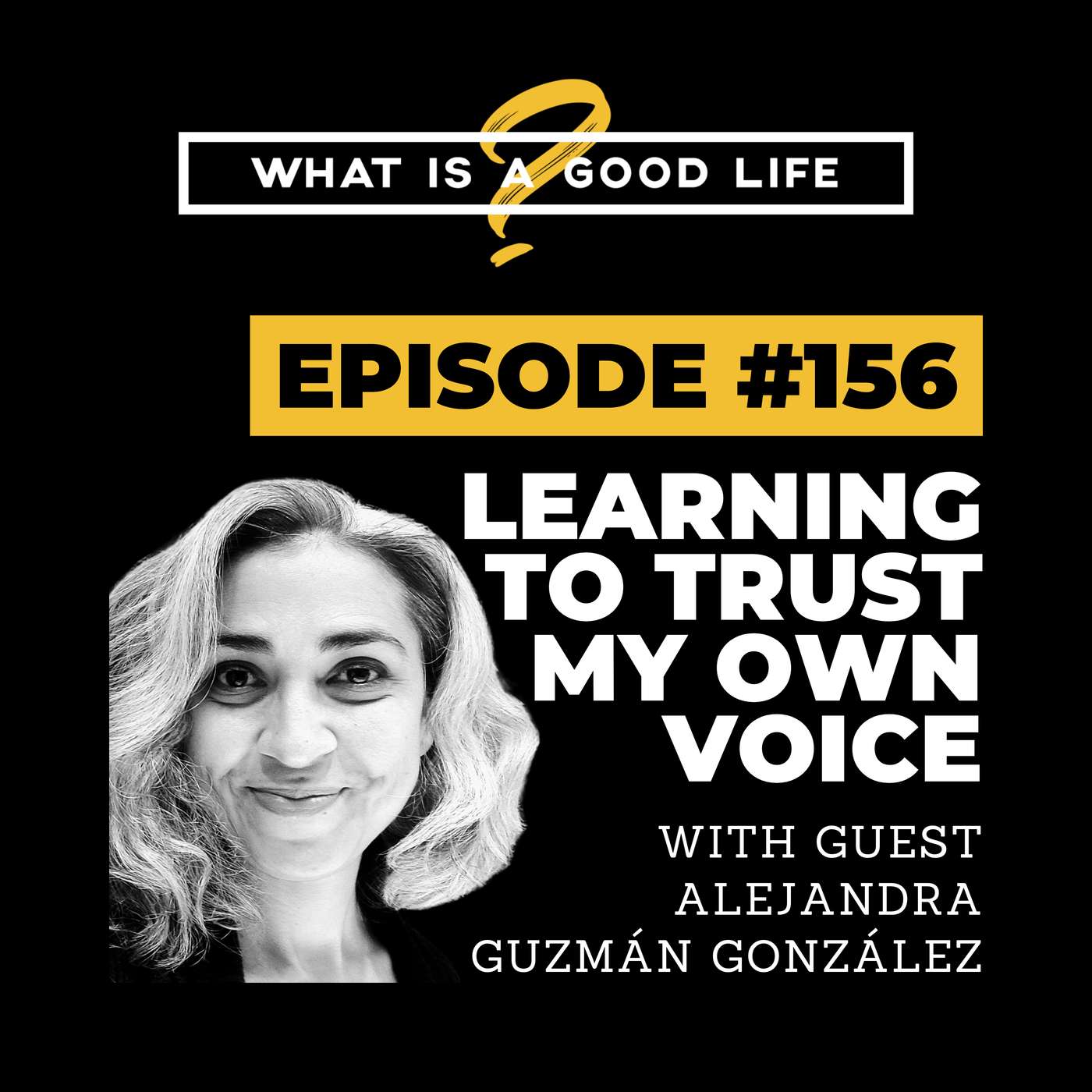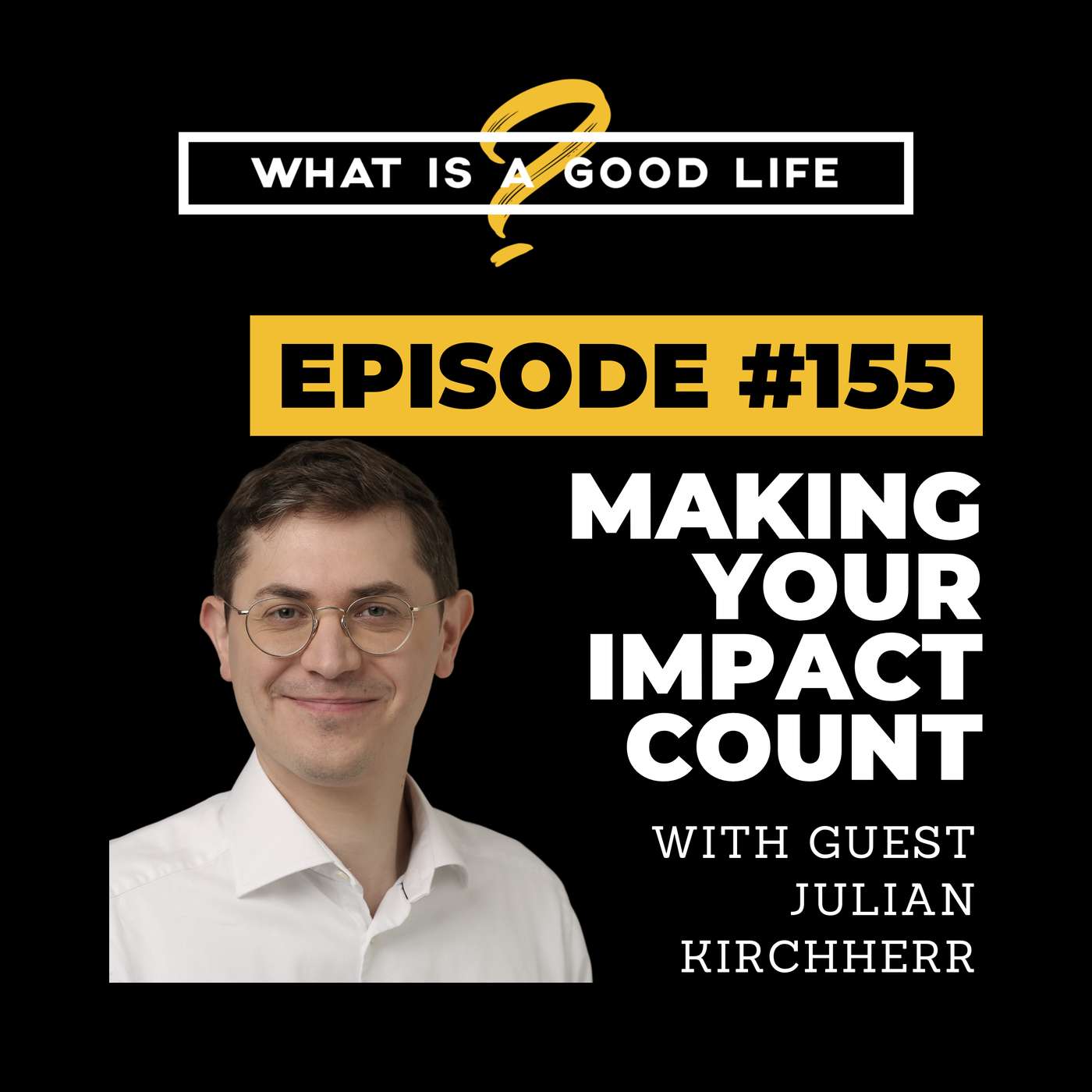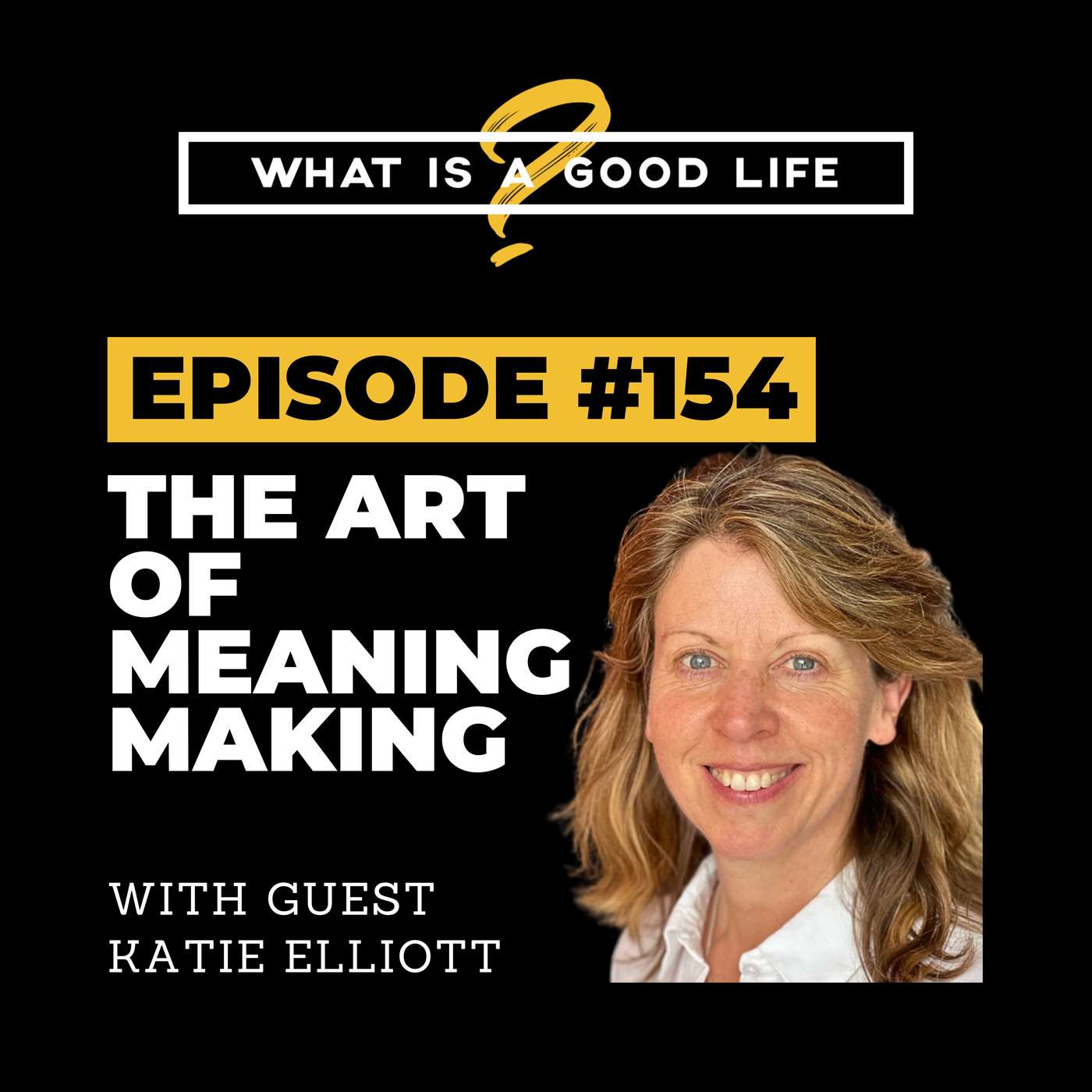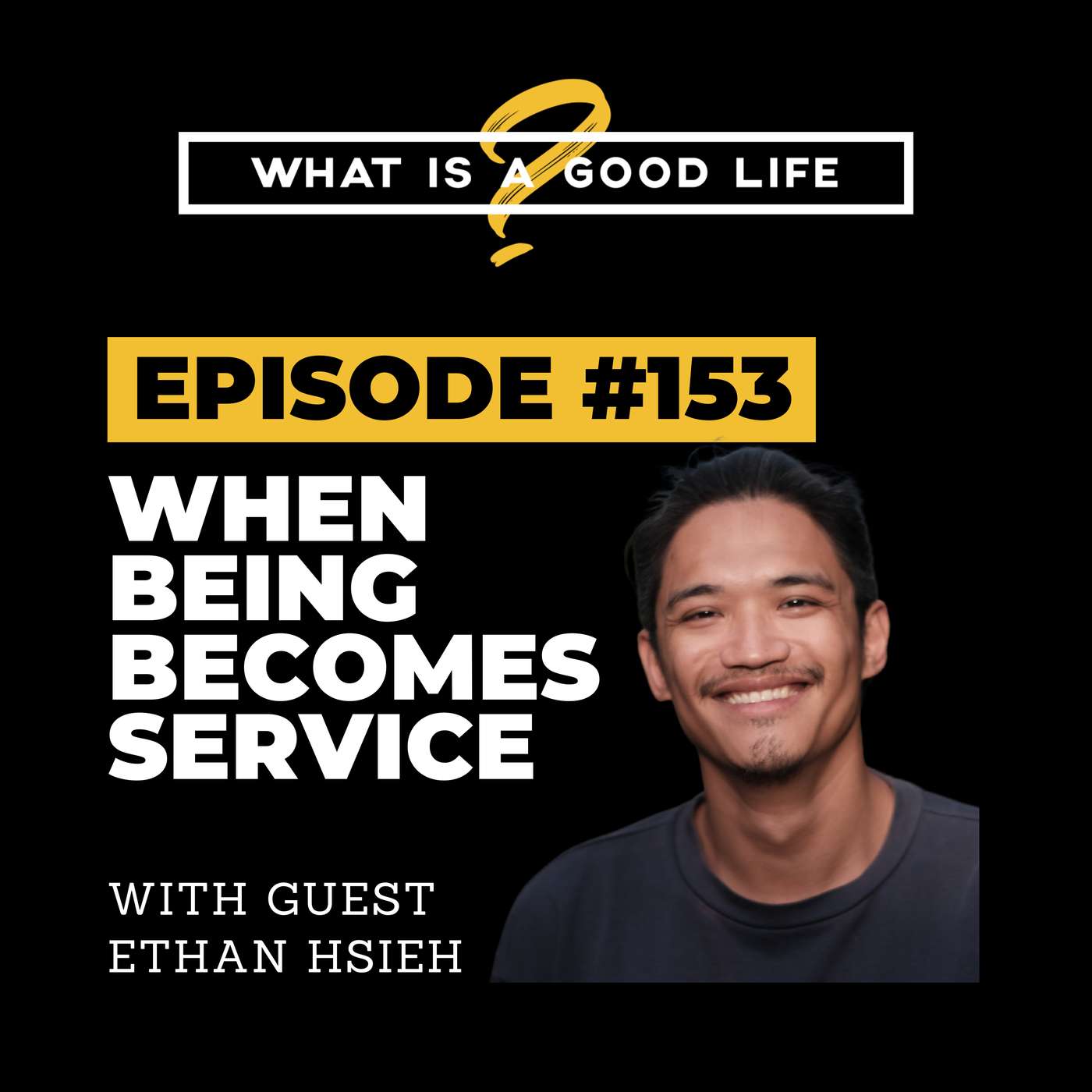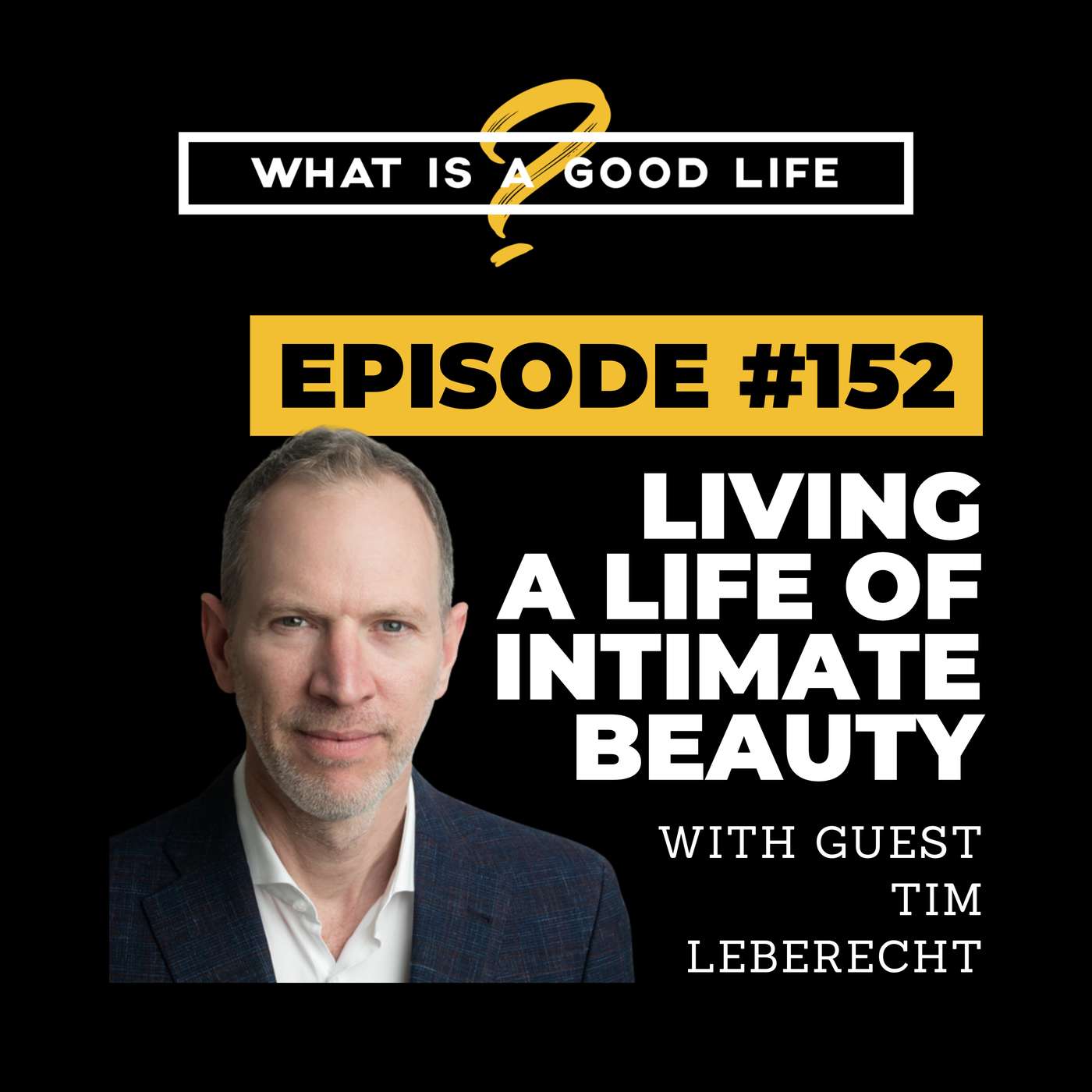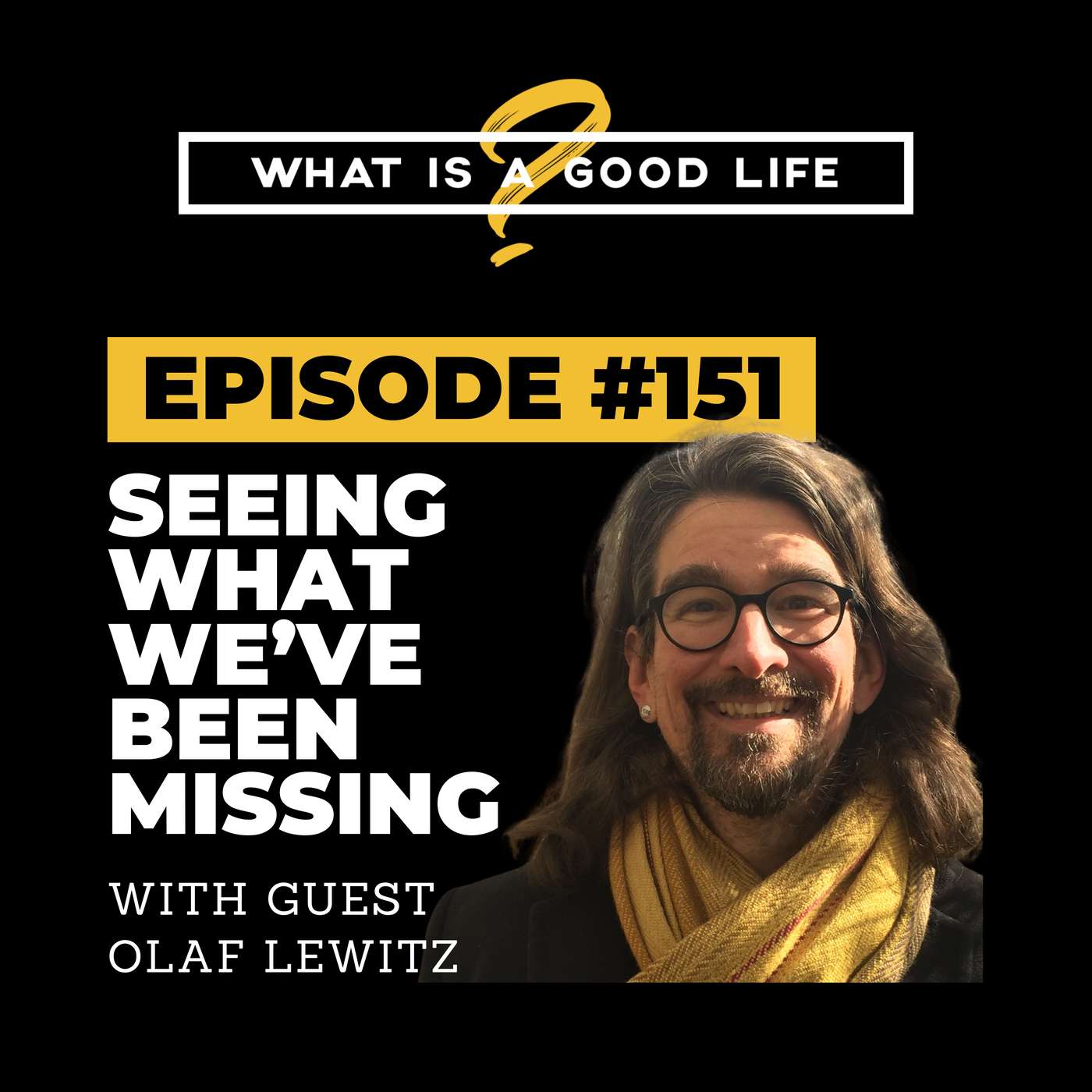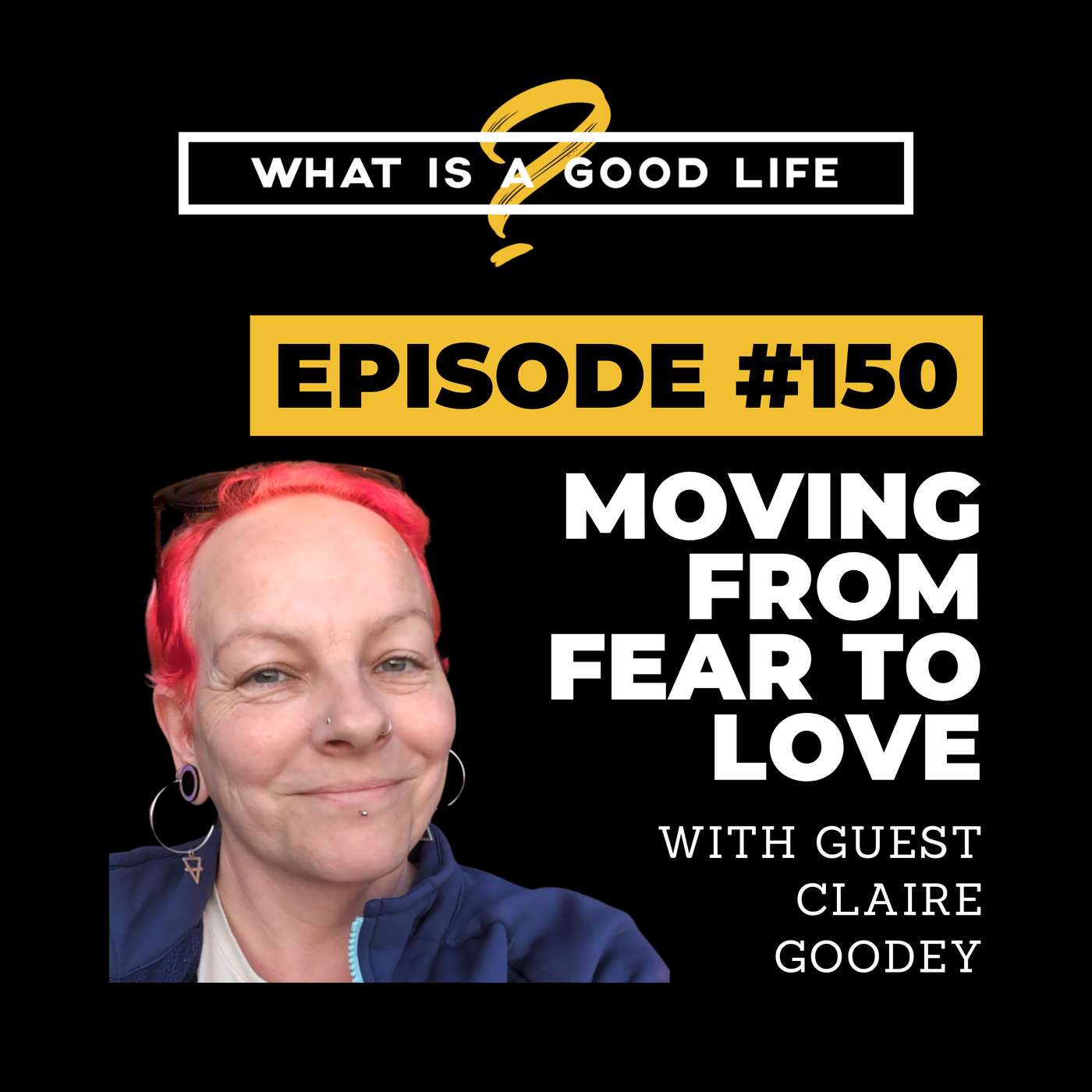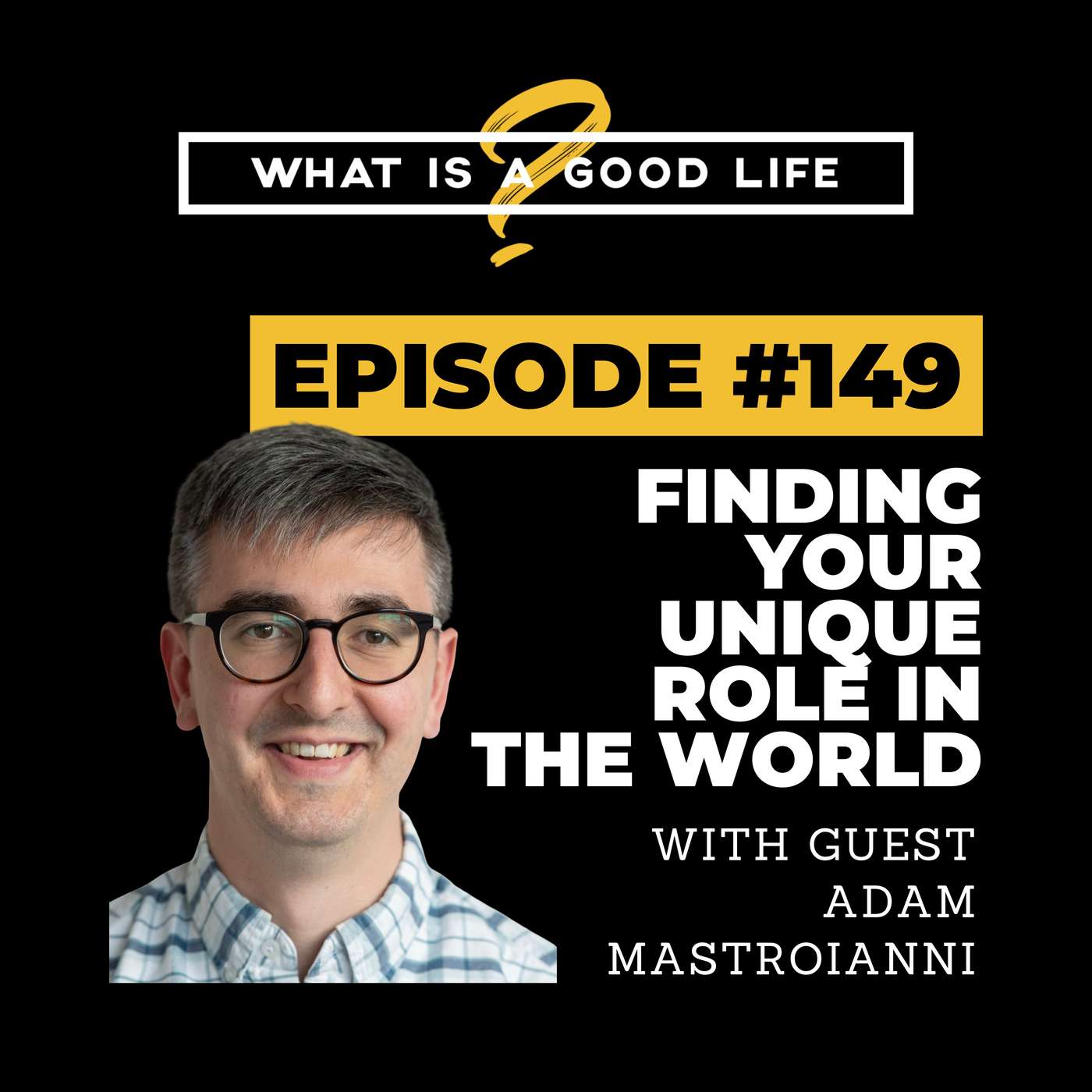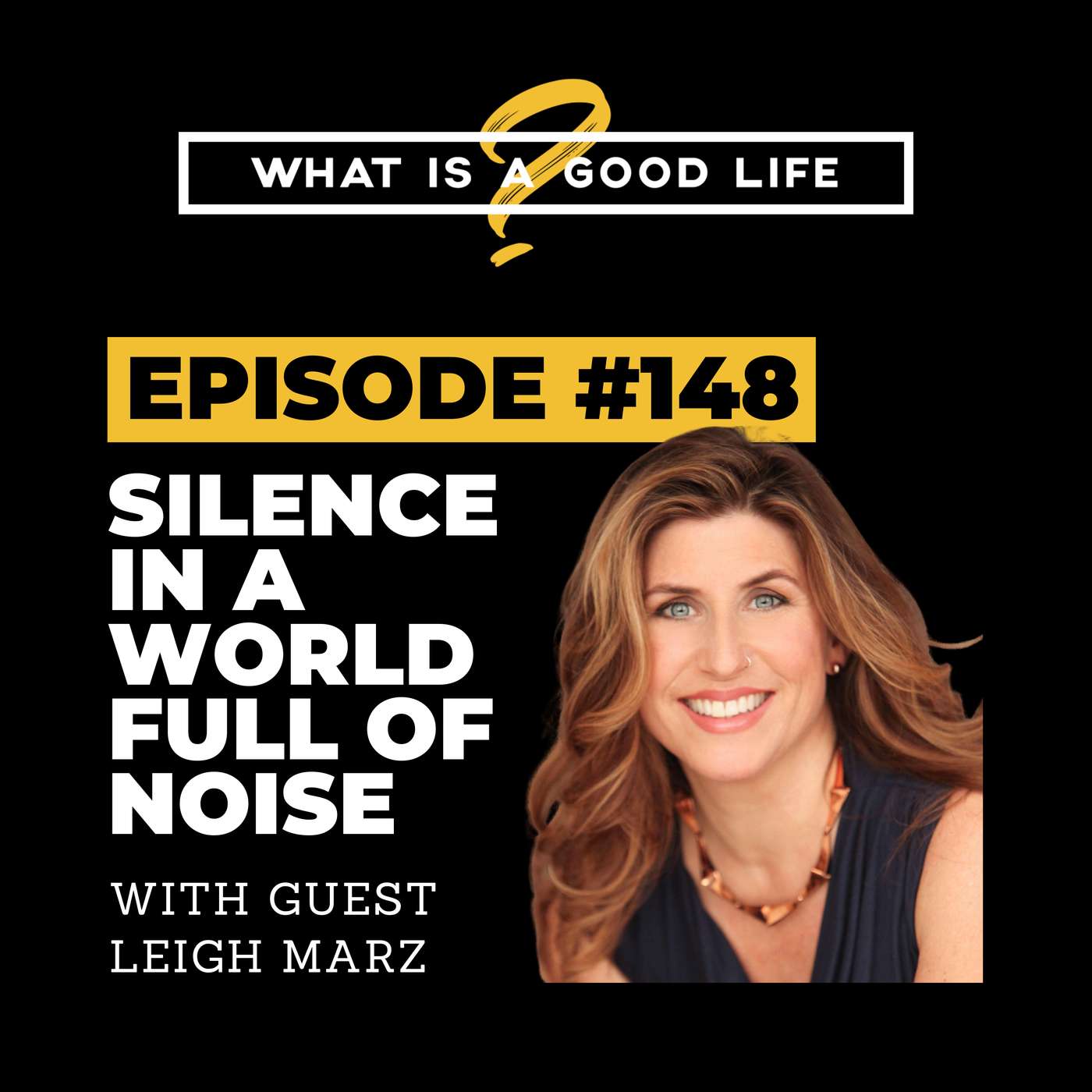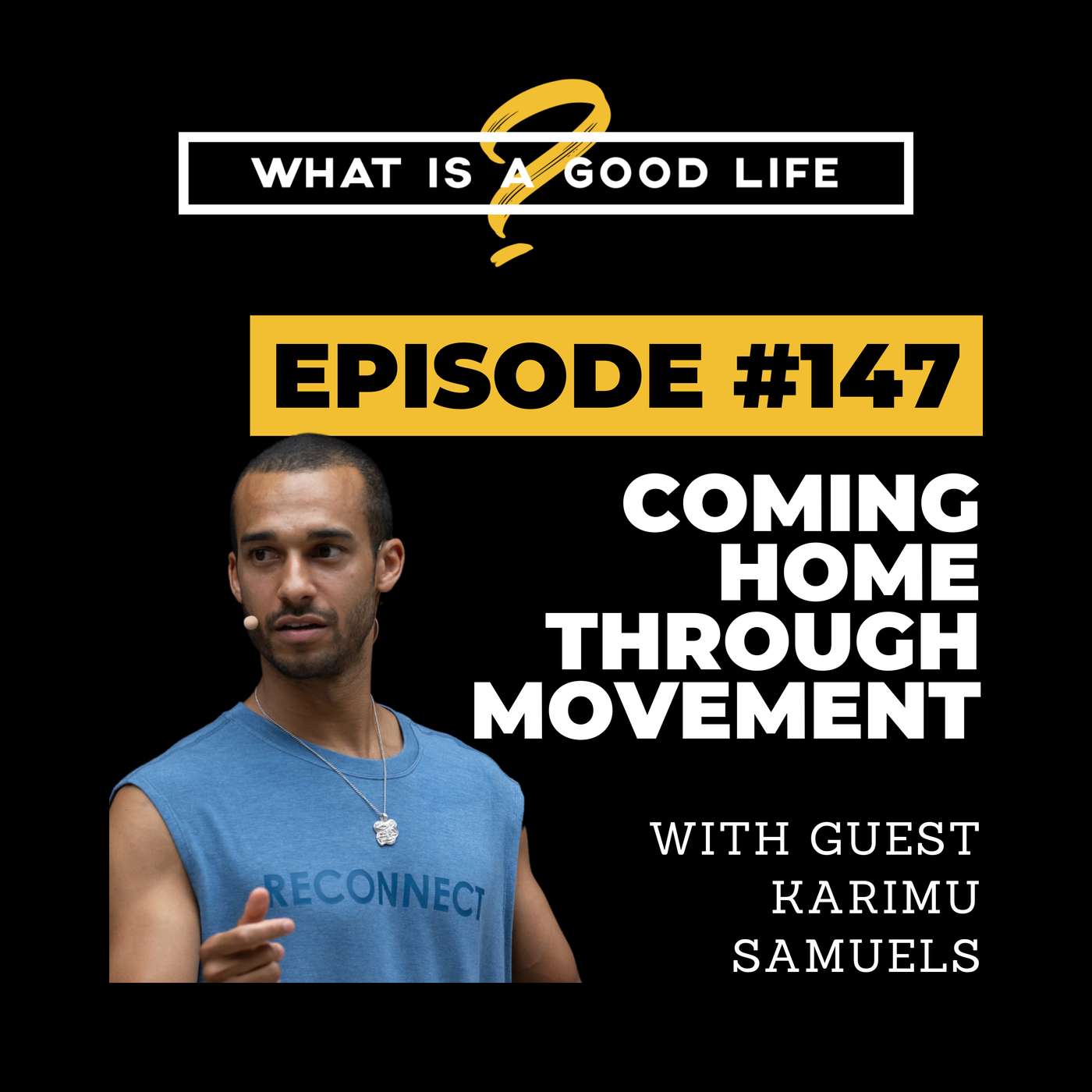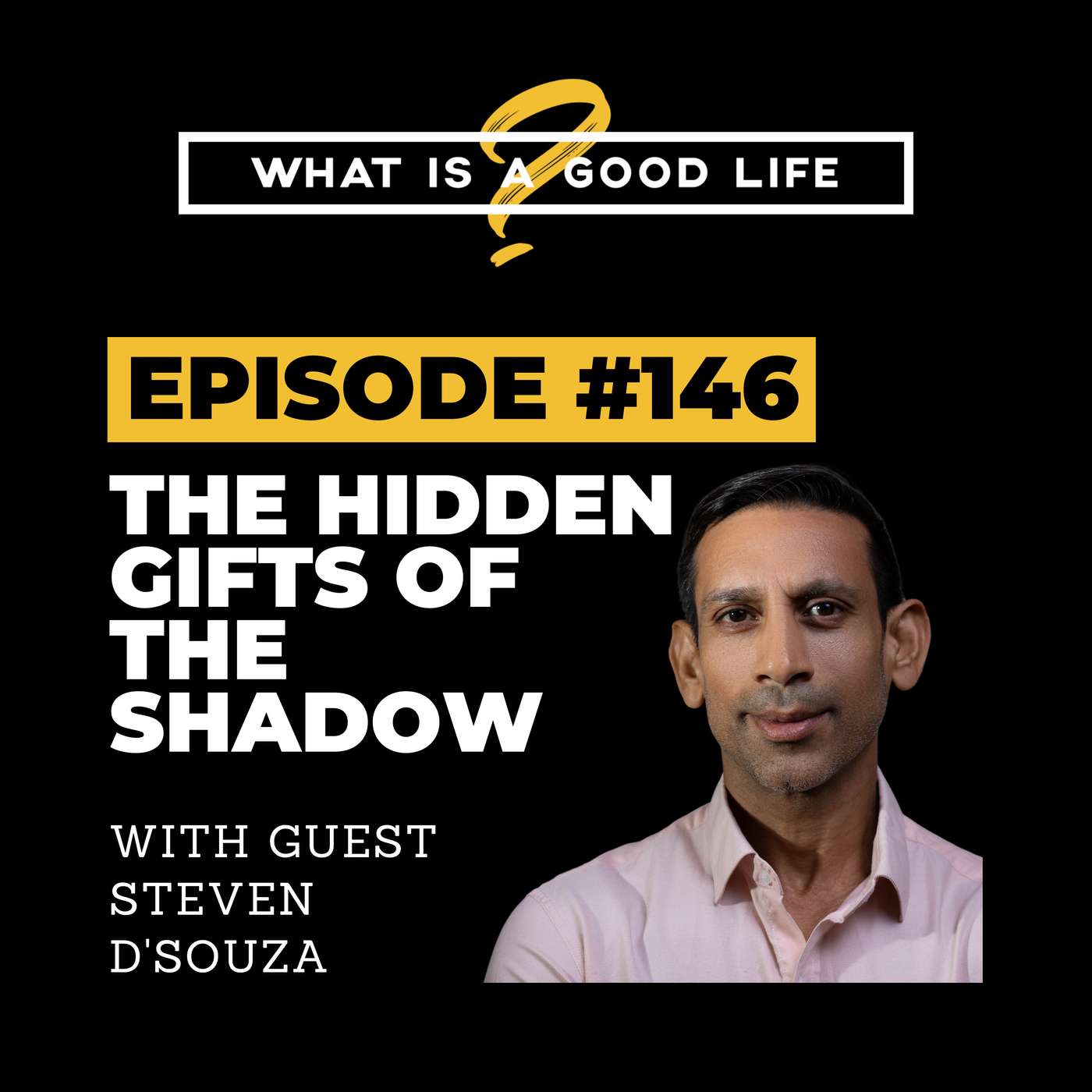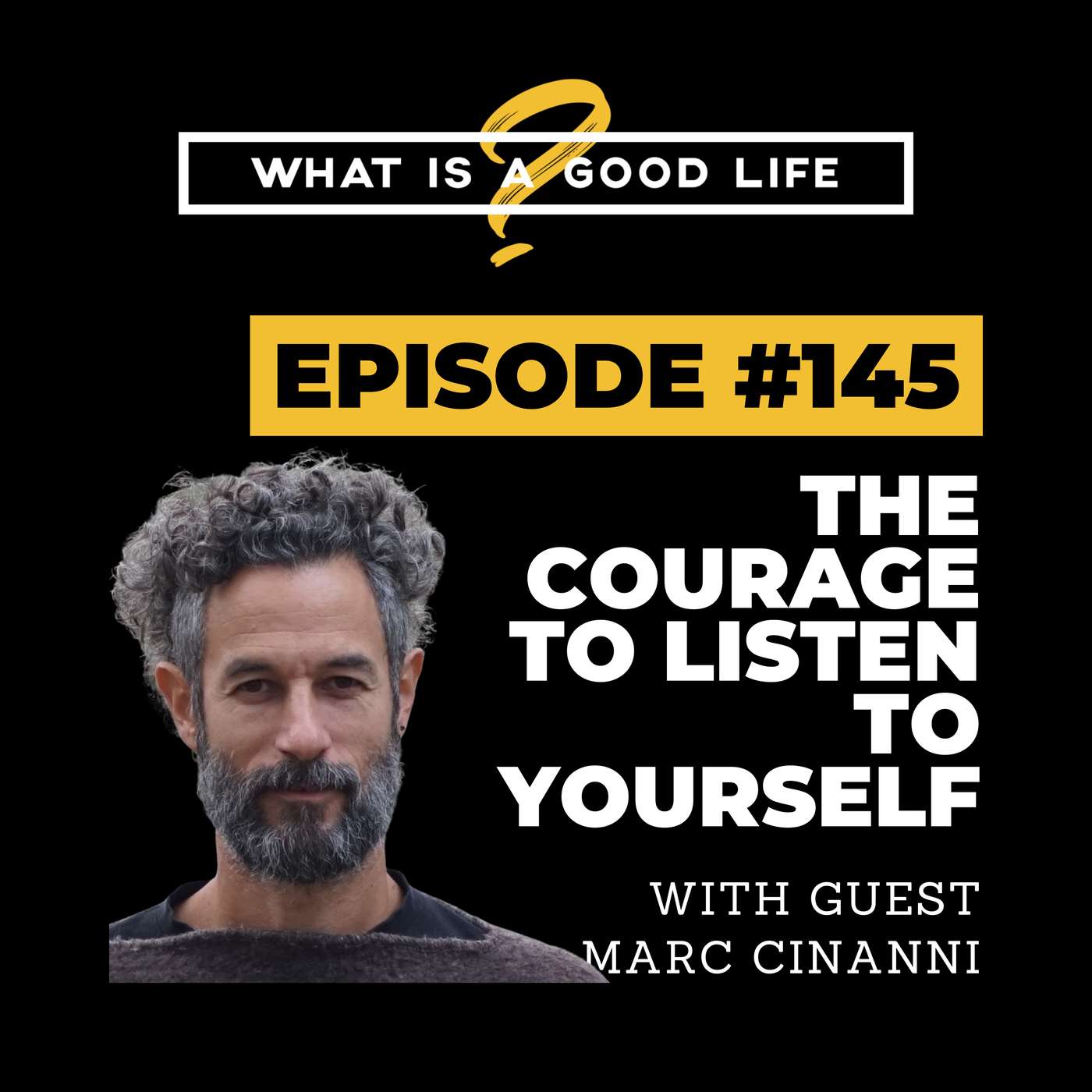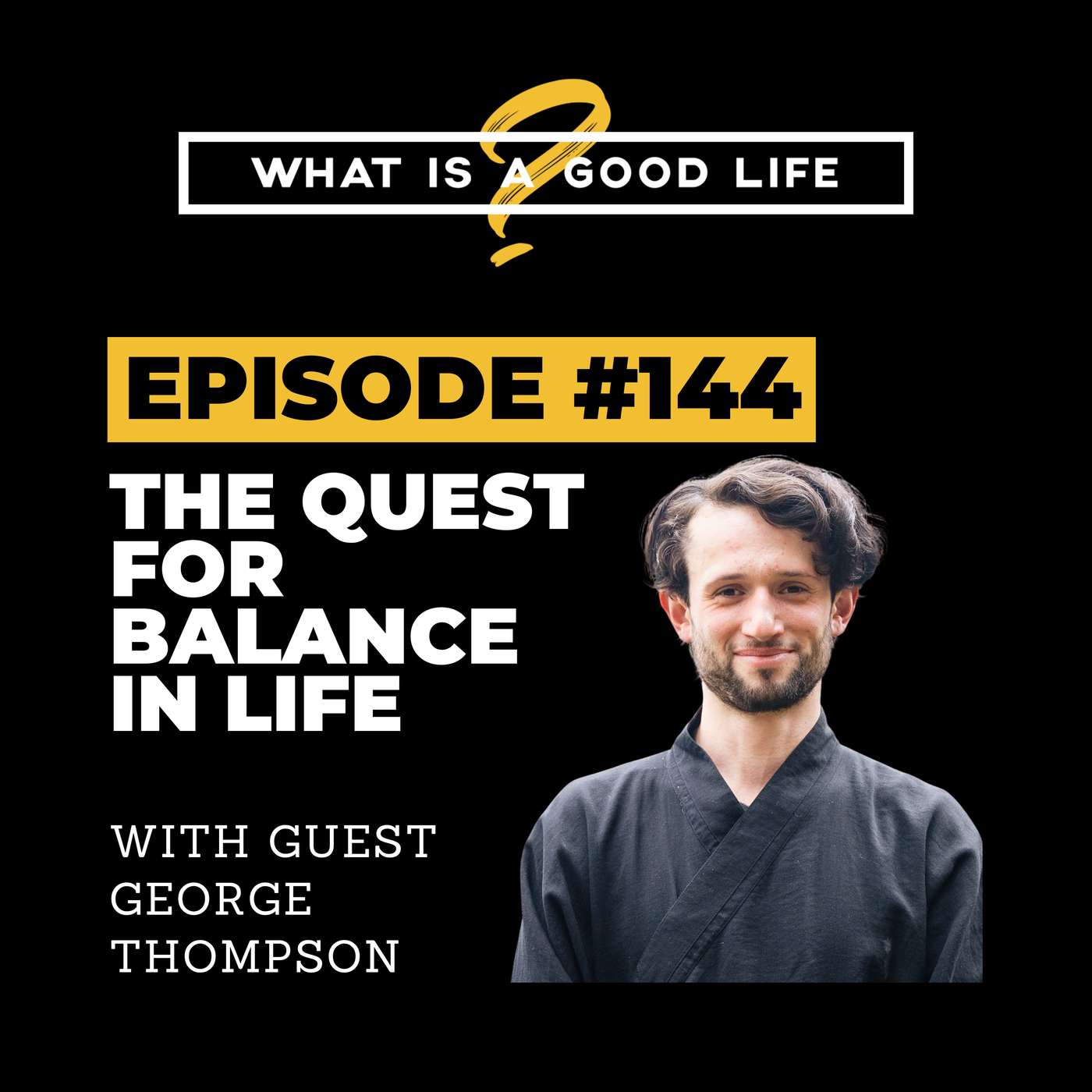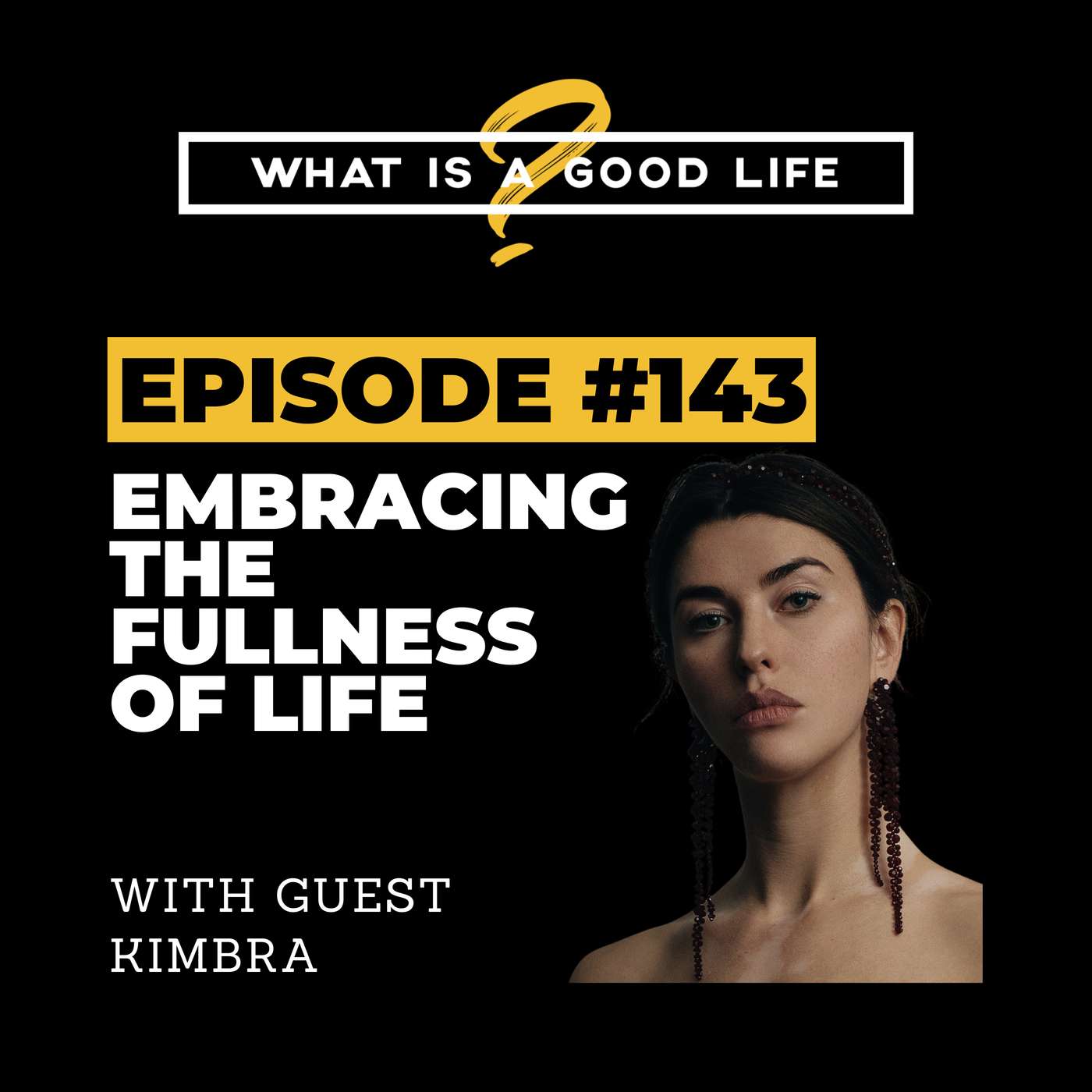Discover What is a Good Life?
What is a Good Life?

What is a Good Life?
Author: Mark McCartney
Subscribed: 18Played: 458Subscribe
Share
© Mark McCartney
Description
A project that isn’t about fixing you - it’s about noticing and inhabiting life more fully.
What Is a Good Life? is a long-form conversation project exploring how people actually live, feel, and make meaning of their lives. Over the past four years, I’ve sat with more than 300 people — artists, parents, executives, wanderers, therapists, and strangers and invited them into a simple but profound inquiry, "What is a good life for you?"
The conversations explore presence, paradox, uncertainty, and the moments that shape a life - love and loss, trust and fear, clarity and not knowing. It’s an invitations to slow down, to listen deeply, and to bring you into conversation with your own life. There are new episodes every Tuesday.
What Is a Good Life? is a long-form conversation project exploring how people actually live, feel, and make meaning of their lives. Over the past four years, I’ve sat with more than 300 people — artists, parents, executives, wanderers, therapists, and strangers and invited them into a simple but profound inquiry, "What is a good life for you?"
The conversations explore presence, paradox, uncertainty, and the moments that shape a life - love and loss, trust and fear, clarity and not knowing. It’s an invitations to slow down, to listen deeply, and to bring you into conversation with your own life. There are new episodes every Tuesday.
162 Episodes
Reverse
In this episode of What Is a Good Life?, Mark McCartney is joined by Jasper Walshe, coach, facilitator and founder of TRIPS Tank™, for an honest and wide-ranging conversation about identity, self-trust and what it really means to live well. Jasper traces his journey from fixating on high-performance coaching to a deeper, more grounded relationship with himself — touching on psychotherapy breakthroughs, psychedelic experiences, the trap of wrapping identity in achievement, and his present question: how can I live in wonder? This is a genuinely human conversation about accepting the full range of life, not just the optimised parts.Topics covered:- High performance identity & its hidden cost- Psychotherapy & the power of unfiltered honesty- Living in wonder vs chasing optimisation- Self-respect as a core value- Moments of unexpected clarity- What is a good life?This episode is for anyone who's hit the goals and found themselves asking — is this it?For more from Jasper Walshe:Company Website: https://tripstank.com/LinkedIn: https://www.linkedin.com/in/jasperwalshe/For more from Mark McCartney:Newsletter: https://www.whatisagood.life/Website: https://www.mmcleadership.com/LinkedIn: https://www.linkedin.com/in/mark-mccartney-14b0161b4/YouTube: https://www.youtube.com/@whatisagoodlifeInstagram: https://www.instagram.com/markcmccartney0:00 – Jasper's evolving life question02:30 – The high performance Kool-Aid06:00 – Curiosity beyond performance10:33 – Letting go of identity15:04 – "So, who are you?"19:30 – Dropping the filtered answers23:00 – The couch breakthrough moment28:30 – How "wonder" emerged36:30 – Visualising five years ahead45:44 – What self-respect looks like58:55 – What is a good life?
What does it take to be happy? And why does happiness so often slip away?In this episode of What Is a Good Life?, Mark McCartney is joined by Rasmus Hougaard for a conversation that moves from childhood questions about happiness, to monasteries in Nepal, to the boardrooms where he now works to transform leadership. Rasmus is the Founder and Chairman of Potential Project and was nominated by Thinkers 50 as one of the eight most important leadership thinkers in the world today. He's the author of The Mind of the Leader, Compassionate Leadership, and More Human: How the Power of AI Can Transform the Way You Lead.Together, they explore:Why an eight-year-old's question about happiness became a life's workThe cultural wisdom Rasmus found in Nepal that the West is missingHow his brother's death inspired his life's purposeA profound encounter with an unknown monk that transmitted unconditional loveThe difficulty of being human, even with deep practice and good intentionsThe innate goodness we all carry (and why many of us have forgotten it)What changes when leaders ask "how are you?" before "what do we need to do?"This conversation sits with both the challenge of being human and the incredible capacity we have for loving kindness. It's about the practice of returning to what matters again and again.This episode is for anyone wondering if there's more to leadership, happiness, and being human than what we've been taught.For more of Rasmus' work:Potential Project: https://www.potentialproject.com/Books: https://www.potentialproject.com/resources#01-books LinkedIn: https://www.linkedin.com/in/rasmushougaard/For more from Mark McCartney:Newsletter: https://www.whatisagood.life/Website: https://www.mmcleadership.com/LinkedIn: https://www.linkedin.com/in/mark-mccartney-14b0161b4/YouTube: https://www.youtube.com/@whatisagoodlifeInstagram: https://www.instagram.com/markcmccartney00:00 Why Aren't We Happy?05:30 Finding a Practice at Seventeen11:45 Wisdom in Himalayan Culture17:20 Life's Purpose from Tragedy24:30 Meeting Bodhisattva Charles31:15 Our Innate Human Goodness37:40 The Difficulty of Being Human43:10 Forced Surrender and Self-Compassion48:25 Transformation in Corporate Spaces52:15 Multiple Lives, Less Pressure54:30 What is a Good Life for Rasmus?
What does it really mean to live a coherent life?In this episode of What Is a Good Life, Mark McCartney is joined by João Sevilhano for a deep, reflective conversation on coherence, something that goes beyond rigid moral ideals and is more a lived, imperfect practice. João is a psychologist and learning experience designer. Co-CEO of Way Beyond, where he works on human development and organisational transformation. His background is in clinical psychology and psychoanalysis. He collaborates with Porto Business School and NOVA Doctoral School, and he tends to think meaningful conversation is underrated as a tool for change.Together, they explore:What coherence feels like in everyday lifeThe tension between values, actions, and changing our mindsWhy coherence is different from authenticity or consistencyParenting, work, and small decisions as tests of alignment“Slow activism” and the impact of how we show up with othersRather than offering quick answers or formulas, this conversation sits with uncertainty, contradiction, and the discipline of paying attention - particularly when no one is watching.This episode is for anyone feeling the pull between who they are, how they live, and what the world is asking of them right now.For more of João's work:Newsletter: https://useful-uselessness.com/Way Beyond Website: https://www.waybeyond.pt/ LinkedIn: https://www.linkedin.com/in/joaosevilhano/ For more from Mark McCartney:Newsletter: https://www.whatisagood.life/Website: https://www.mmcleadership.com/LinkedIn: https://www.linkedin.com/in/mark-mccartney-14b0161b4/YouTube: https://www.youtube.com/@whatisagoodlifeInstagram: https://www.instagram.com/markcmccartney00:00 Questions as Companions07:00 Spirituality in Everyday Life13:00 Coherence as Purpose16:30 Flexibility and Awareness22:30 Discipline and Practice30:00 Helping Without Imposing36:00 Slow Activism and Stubbornness42:00 Living With Contradiction49:00 Reflection on Sacrifice54:00 Not Knowing as a Practice
How do we live in harmony with each other and the natural world?Cindy Forde is a thought leader and acclaimed author with over 25 years dedicated to systems change. In 2023, she won the Change Champion Award alongside leaders such as David Attenborough and Malala Yusafzai for her children's book 'Bright New World,' which was adopted by the Australian National Curriculum. She founded Planetari, pioneering Earth-led education, earning a Climate Positive Award at UN COP28. Previously MD of Blue Marine Foundation and CEO of Cambridge Science Centre, she is an Associate Fellow of University of Cambridge Homerton College where she is currently co-founding the Centre for Systemic Change. She is a trained yoga teacher and sound healing practitioner.In this profound conversation, we explore the role of spiritual practice in sustaining changemakers, the paradox of living in systems misaligned with our values, and why "cosmic time" might offer a more realistic perspective on transformation than human urgency. Cindy shares why we need the courage to build entirely new models rather than fixing broken systems, and how current education systems crush the natural interconnectedness that children understand.For more of Cindy's work:Website: https://cindyforde.world/Planetari: https://planetari.world/LinkedIn: https://www.linkedin.com/in/cindy-forde-10668911/For more from Mark McCartney:Newsletter: https://www.whatisagood.life/Website: https://www.mmcleadership.com/LinkedIn: https://www.linkedin.com/in/mark-mccartney-14b0161b4/YouTube: https://www.youtube.com/@whatisagoodlifeInstagram: https://www.instagram.com/markcmccartney00:00 - The Guiding Question of Harmony 05:45 - Growing Up Between Two Worlds 12:30 - Discovering Spiritual Practice 18:45 - Inner and Outer Coherence 25:15 - The Corporate Paradox 30:00 - Understanding Cosmic Time 35:30 - Urgency and Thinking Differently 40:30 - Single Issues to Systems 44:00 - Courage to Call Out 47:30 - Crushing Natural Interconnectedness 50:00 - What Is a Good Life
What is a Good Life? #158 | Finding Self-Love Beyond AchievementWhere do you belong? How do you best use your gifts?These questions have followed Alan Wilson throughout his life—from childhood football pitches to corporate boardrooms. In this deeply honest conversation, Alan shares his journey from seeking external validation to cultivating self-love, exploring how grief, self-inquiry, and simple presence have reshaped his understanding of a good life.Alan Wilson is a Director of People & Operations and qualified coach with 17+ years in senior leadership roles. He supports leaders and organisations navigating change by combining commercial insight with a deeply human approach—focused on self-awareness, integrity, and sustainable performance.In this episode:The childhood patterns behind our adult strugglesWhy achievement never feels like enoughFinding centre in an increasingly distracted worldHow children guide us back to presenceWhy self-love transforms leadershipThe agency we have despite feeling disempoweredThis conversation is for anyone questioning whether they're enough, struggling with validation, or wondering if there's more to life than the next achievement.For more of Alan's work:LinkedIn: https://www.linkedin.com/in/alan-wilson-084b3324/For more from Mark McCartney:Newsletter: https://www.whatisagood.life/Website: https://www.mmcleadership.com/LinkedIn: https://www.linkedin.com/in/mark-mccartney-14b0161b4/YouTube: https://www.youtube.com/@whatisagoodlifeInstagram: https://www.instagram.com/markcmccartney 00:00 - Where Do I Belong? 05:23 - The Validation Trap 10:47 - Self-Inquiry and Grief 16:12 - Moments That Allow Breathing 21:35 - Toxicity and Modern Life 27:43 - Children as Our Compass 33:21 - Beyond Material Accumulation 38:45 - Dismantling the Armour 44:02 - Agency in a Disempowered World 49:18 - Transmitting Our Gifts Daily 54:31 - A Life That's Evolving
On the 157th episode of What Is a Good Life?, I’m joined by Matt Zeigler. Matt is Managing Director at Sunpointe Investments, Senior Editor at Panoptica (a multimedia collaboration with Epsilon Theory), and co-owner and host of Excess Returns, a podcast and YouTube channel. Through his Cultish Creative brand, he transforms complex ideas into accessible insights, helping people make better connections and approach challenges with curiosity.Matt shares his journey from profound disconnection to finding an abundance of connection and meaning through family, work, and community. From a pivotal therapy session that changed everything to discovering the value of small, intentional experiences, he explores how building bridges instead of prisons transformed his life. This is a conversation about vulnerability, curiosity, and the courage to stop running from connection.This episode is for anyone who feels cut off from others and is looking to find their way back—and for anyone looking to feel more optimistic about humanity.For more of Matt's work:Cultish creative: https://cultishcreative.com/LinkedIn: https://www.linkedin.com/in/matt-zeigler/For more from Mark McCartney:Newsletter: https://www.whatisagood.life/Website: https://www.mmcleadership.com/LinkedIn: https://www.linkedin.com/in/mark-mccartney-14b0161b4/YouTube: https://www.youtube.com/@whatisagoodlifeInstagram: https://www.instagram.com/markcmccartney00:00 — The Disconnection Question04:16 — Three Layers of Life06:50 — Leaving home, independence, and loneliness10:11 — Therapy Wake-Up Call18:02 — Learning to Share23:23 — Small openings that build real bonds31:38 — Rules, ladders, and inherited structures45:26 — Energy shift after choosing alignment50:09 — Community Comes Alive58:18 — What is a Good Life for Matt?
On the 156th episode of What Is a Good Life?, I’m joined by Alejandra Guzmán González. Alejandra is a Nicaraguan educator, lifelong learner, and mother of two. She describes herself as an artist with a dancer’s feet, the soul of a theatre actress, and the writer’s force within (publishing under the pen name aimé). Her work is rooted in curiosity, reflection, and human connection, and she continues to devote her professional life to education and learning-centred projects.In this episode, Alejandra shares her journey of discovering how to trust her own voice. She reflects on personal experiences, family, and the process of making her own decisions with confidence while staying connected to the people she loves.This conversation is for anyone looking to build greater trust in themselves and their own decisions.For Alejandra's Newsletter: https://aimewrites.substack.com/For more from Mark McCartney:Newsletter: https://www.whatisagood.life/Website: https://www.mmcleadership.com/LinkedIn: https://www.linkedin.com/in/mark-mccartney-14b0161b4/YouTube: https://www.youtube.com/@whatisagoodlifeInstagram: https://www.instagram.com/markcmccartney00:00 - Living the Question03:18 - Seeking External Answers07:02 - Teaching and Questioning10:05 - Parenting and Frustration13:46 - Building Inner Trust17:53 - Cocooning and Withdrawal22:45 - Listening Beyond Answers30:31 - The Right to Listen38:10 - A Defining Moment48:03 - Health as Teacher56:46 - What Is a Good Life For Alejandra?
On the 155th episode of What Is a Good Life?, I’m joined by Julian Kirchherr. Julian combines a career as a Partner at McKinsey & Company with his role as an Associate Professor at Roskilde University. At McKinsey, he co-leads the firm’s public sector work in Europe, focusing on people and organisational performance, while his academic research centres on the circular economy. He ranks among the most highly cited circular economy scholars worldwide. He earned his PhD from St Antony’s College, University of Oxford, and is the author of The Lean PhD: Radically Improve the Efficiency, Quality and Impact of Your Research.In this conversation, we explore curiosity, autonomy, and the value of diverse experiences. Julian also discusses caring too much about external demands, and how this can undermine autonomy, meaning, and impact. This episode will resonate with anyone carving out their own path and explores what it can take to make your own impact.For more of Julian's work:LinkedIn: https://www.linkedin.com/in/julian-kirchherr-42a52032/For more from Mark McCartney:Newsletter: https://www.whatisagood.life/Website: https://www.mmcleadership.com/LinkedIn: https://www.linkedin.com/in/mark-mccartney-14b0161b4/YouTube: https://www.youtube.com/@whatisagoodlifeInstagram: https://www.instagram.com/markcmccartney00:00 Curiosity Over One Question 02:35 Bullshit In Academia07:23 Autonomy And Freedom 09:01 Disillusion With Academia 12:18 Early Intellectual Influences 14:55 Myanmar And Outsized Impact 19:59 Pre-Academia Model26:12 Energy From Dual Roles 30:02 Bias Toward Action 42:50 Bridging Knowledge And Practice 46:51 What is a good life for Julian?
On the 154th episode of What Is a Good Life?, I’m joined by Katie Elliott. Katie is a facilitator, writer, and programme designer working across community and organisational settings. With a background in jazz and a long-standing fascination with human change and habits, she creates tools, conversations, and projects that explore how people make sense of themselves and one another. Her work includes Amiko® Cards, the Adventures in Behaviour Change podcast, a series of children’s books, and an album of original piano music.In this conversation, we explore curiosity, bewilderment, and the value of staying with experience rather than rushing to explain or resolve it. We talk about patterns, presence, and how meaning slowly reveals itself in relationships and in life — showing how deeper listening and meaningful conversation can genuinely shift how you see yourself and others.For more of Katie's work:Website: https://www.littlechallenges.com/ LinkedIn: https://www.linkedin.com/in/katieelliott/For more from Mark McCartney:Newsletter: https://www.whatisagood.life/Website: https://www.mmcleadership.com/LinkedIn: https://www.linkedin.com/in/mark-mccartney-14b0161b4/YouTube: https://www.youtube.com/@whatisagoodlifeInstagram: https://www.instagram.com/markcmccartney00:00 — Patterns and Play 04:31 — Bewildered by Humans 07:48 — Not Being Believed 10:21 — Staying Open 13:01 — Kindness Inside 17:17 — Being Human Together 20:56 — Dropping the Mask 23:31 — Jazz and Freedom31:26 — Creating Human Spaces 40:44 — Making Meaning Together 52:31 — What is a Good Life for Katie?
On the 153rd episode of What Is a Good Life?, I’m joined by Ethan Hsieh for a wide-ranging and deeply human conversation on service, being, and what happens when self-work goes too far.Ethan is currently undertaking his PhD research integrating performance-training with 4E cognitive science. With an MA in Professional Practice: Theatre and Drama Facilitation, he has designed and delivered transformational community-building programs, retreats, and workshops across Asia and Europe through his organisation 5ToMidnight, where he is Artistic Director. He also serves as Platform Manager for The Lectern and has co-designed select practices with John Vervaeke, including the Socratic Imaginal Self-Reflection and the Socratic Search Space. Ethan maintains a private coaching practice working with corporate leaders, professional athletes, and social organisations.Together, we explore nihilism, play, embodiment, identity, and the question that now orients Ethan’s life: When does being itself become service?This episode invites listeners to loosen self-fixation, recover participation, and rediscover what becomes possible when we allow life—and each other—to change us.For more of Ethan's work:Website: https://www.5tomidnight.org/LinkedIn: https://www.linkedin.com/in/ethan-hsieh-828a63240/For more from Mark McCartney:Newsletter: https://www.whatisagood.life/Website: https://www.mmcleadership.com/LinkedIn: https://www.linkedin.com/in/mark-mccartney-14b0161b4/YouTube: https://www.youtube.com/@whatisagoodlifeInstagram: https://www.instagram.com/markcmccartney00:00 A Question of Service05:40 Self-Work’s Breaking Point 08:04 From Optimization to Orientation12:52 Not Knowing Intimately 16:31 Returning to Play 26:56 Letting Experience In 31:31 Contact With Life36:46 Seeing Others Anew43:42 Identity Held Loosely52:19 Embodiment and Coherence 59:30 What is a good life for Ethan?
On the 152nd episode of What is a Good Life?, I welcome Tim Leberecht, one of the most original and passionate voices on creating a more humane future of business. Tim is a German-American entrepreneur, curator, and author, and the co-founder and co-CEO of the House of Beautiful Business, a global community for those who seek more from work and from one another. A sought-after keynote speaker, his two TED Talks have been viewed more than 3 million times. He is the author of The Business Romantic (Harper Business, 2015), translated into ten languages, The End of Winning (Droemer, 2020), and the forthcoming Supercurator (Basic/Hachette, 2027). Tim is also a BMW Foundation Responsible Leader.In this conversation, Tim reflects on belonging, intimacy, and what it means to live a good life amidst the pressures of performance and an increasingly AI-shaped world. He speaks to the value of sensitivity, connection, and community — and how creating spaces for presence and honest conversation can reshape how we experience ourselves and each other.This is a conversation for anyone longing for deeper connection — with themselves, with others, and with a world becoming ever more synthetic.For more of Tim's work:Website: https://houseofbeautifulbusiness.com/ Books: http://timleberecht.com/books/ LinkedIn: https://www.linkedin.com/in/tleberecht/ HoBB newsletter: https://houseofbeautifulbusiness.substack.com/For more from Mark McCartney:Newsletter: https://www.whatisagood.life/Website: https://www.mmcleadership.com/LinkedIn: https://www.linkedin.com/in/mark-mccartney-14b0161b4/YouTube: https://www.youtube.com/@whatisagoodlifeInstagram: https://www.instagram.com/markcmccartney00:00 — The question of belonging 04:15 — Morning reconstruction of self 07:42 — Performance and authenticity tension 11:18 — Limits of self-optimisation 15:03 — Beauty and the good life 19:27 — Connection in a synthetic world 23:54 — Silence as shared intimacy 28:31 — Intimacy beyond human relationships 33:45 — AI as conversational partner 38:12 — Being changed by dialogue 44:08 — Sensitivity as core value 51:36 — Conditions for belonging
On the 151st episode of What is a Good Life?, I welcome Olaf Lewitz. Olaf is the Trust Artist, a leadership thinker and coach who’s endlessly curious about our similarities and differences, and how context shapes the quality of attention we give each other. He’s learning how to change systems so that they support life rather than extract or exploit it, sourcing wisdom and insight from unexpected places. He does this through his TrustTemenos Academy and his work with Dark Matter Labs.In this conversation, we explore the question “What am I missing?” as a way into anger, boundaries, and the stories we tell ourselves – and how much of our “drama” is created by our interpretations rather than reality.Olaf shares how an unshakeable sense of worth and hope help him live with paradox: enjoying a good life while staying awake to harm, responsibility, and the future of our children – and what that invites us to examine in our own lives.For more of Olaf's work:Website: https://www.trusttemenos.com/LinkedIn: https://www.linkedin.com/in/olaflewitz/For more from Mark McCartney:Newsletter: https://www.whatisagood.life/Website: https://www.mmcleadership.com/LinkedIn: https://www.linkedin.com/in/mark-mccartney-14b0161b4/YouTube: https://www.youtube.com/@whatisagoodlifeInstagram: https://www.instagram.com/markcmccartney00:00 — “What Am I Missing?”06:00 — Discovering Anger & Boundaries11:20 — How We Create Drama15:45 — Interpreting vs. Experiencing Reality20:50 — Laughing at Ourselves24:45 — Balancing Care and Boundaries29:35 — Childhood Patterns & Self-Worth35:55 — Hope Without Optimism41:50 — Paradox of a Good Life47:40 — Future, Responsibility & Children53:50 — What is a good life for Olaf?
On the 150th episode of What is a Good Life?, I welcome Claire Goodey. Claire is an artist, writer, and humanistic psychotherapist. After a decade in private practice—alongside a new autism diagnosis, perimenopause, and a shifting social landscape—she’s returning to her creative roots to cultivate a slower, more analogue way of living. From this liminal space, Claire blends therapeutic insight with artistic expression, offering presence, vulnerability, and play to others feeling the squeeze of modern life.In this conversation, Claire and I explore what it means to stay part of a world that often feels overwhelming, especially while navigating major life transitions. We discuss the gap between knowing something intellectually and living it, the challenge of discerning fear from genuine bodily wisdom, and the importance of presence, rest, and connection. Claire shares her evolving relationship with retreat—what she calls “getting into the slipper”—and how love, openness, and honest self-attunement can shape a more humane way of being.For more of Claire's work:Website: https://www.clairegoodey.com/For more from Mark McCartney:Newsletter: https://www.whatisagood.life/Website: https://www.mmcleadership.com/LinkedIn: https://www.linkedin.com/in/mark-mccartney-14b0161b4/YouTube: https://www.youtube.com/@whatisagoodlifeInstagram: https://www.instagram.com/markcmccartney00:00 Being a part of the world05:01 Pendulum of growth06:45 Late autism diagnosis11:51 Base needs12:15 Embodiment vs thinking17:51 Trust the process19:30 Fear driving so much of the culture26:22 Sound sensitivity outside35:33 “Into the slipper”39:10 Intentional resting52:28 What is good life?
On the 149th episode of What is a Good Life?, I welcome Adam Mastroianni. Adam is an experimental psychologist and author of the popular science newsletter Experimental History. His work has been featured in Nature, The New York Times, and Jimmy Kimmel Live. He has escaped from over 170 escape rooms.In this conversation, Adam discusses the nature of questions and curiosity as driving forces in life. He explores the concept of being possessed by ideas, the role of suffering in personal growth, and the shift from academia to independent thought. This episode highlights the impact that finding your unique role—and contributing meaningfully to the world from that place—can have on your life.For more of Adam's work:Newsletter: https://www.experimental-history.com/Website: https://www.adammastroianni.com/For more from Mark McCartney:Newsletter: https://www.whatisagood.life/Website: https://www.mmcleadership.com/LinkedIn: https://www.linkedin.com/in/mark-mccartney-14b0161b4/YouTube: https://www.youtube.com/@whatisagoodlifeInstagram: https://www.instagram.com/markcmccartney00:00 – Possessed By Big Questions04:06 – Enjoying The Friction07:48 – Why Toilets Took Millennia13:13 – First Day Being Curious18:16 – Internet Praise Vs Real Life23:51 – Freedom Without A Boss28:07 – Choosing Productive Fear31:07 – Leaving A “Good” Career36:52 – What’s Worth Suffering For45:46 – The Cost Of Pretending48:00 – The Ideas Graveyard52:15 – What Is A Good Life?
On the 148th episode of What is a Good Life?, I welcome Leigh Marz, a collaboration and leadership coach for major universities, corporations, and federal agencies. She has led training programs to promote an experimental mindset among teams at NASA and a decade-long cross-sector collaboration to reduce toxic chemicals in products, in partnership with Green Science Policy Institute, Harvard University, IKEA, Google, and Kaiser Permanente. Leigh coauthored Golden: The Power of Silence in a World of Noise and cofounded Astrea Strategies, helping leaders bridge contemplation and action. In this conversation we explore silence as a living presence—how inquiry, pauses, and shared quiet unlock better thinking, connection, and wellbeing. We cover mapping noise (auditory, informational, internal), flow states, and why slowing down in groups (even at work) sparks novel solutions. This episode invites listeners to rediscover silence as a living teacher — one that reveals what truly matters when we’re quiet enough to hear it.For more of Leigh's work:Link to the book: Golden: The Power of Silence in a World of NoiseAstrea Strategies: https://astreastrategies.com/Her website: https://leighmarz.com/For more from Mark McCartney:Newsletter: https://www.whatisagood.life/Website: https://www.mmcleadership.com/LinkedIn: https://www.linkedin.com/in/mark-mccartney-14b0161b4/YouTube: https://www.youtube.com/@whatisagoodlifeInstagram: https://www.instagram.com/markcmccartney00:03 – Intro & why start with questions04:03 – Origins of the silence inquiry & HBR article09:00 – “What’s the deepest silence you’ve known?” 12:41 – Freedom moment: “Silence teems with life” 16:41 – Quiet together: practices beyond meditation24:44 – Mapping noise: auditory, informational, internal29:33 – Antidote: signals you need silence & “positive distractions”35:00 – Designing retreats for novel thinking 38:21 – “Slow down, there isn’t much time.”46:13 – Silence & the nervous system52:00 - How the inquiry into silence has shaped Leigh58:12 – Leigh’s response to “What is a good life?”
On the 147th episode of What is a Good Life?, I’m delighted to welcome Karimu Samuels. Karimu is a movement expert whose journey from exhaustion to ease led him to discover the power of moving through life with flow. With years of studying body functionality and coaching athletes worldwide, he teaches holistic movement that unites body, mind, and emotion — guiding others toward balance and the joy of movement. He embodies the belief that through movement, we can master not only our bodies but also ourselves.In this conversation, Karimu invites us to explore what happens when we stop striving and start listening — to our bodies, our intuition, and the quieter signals of life. From learning to move through the world with less control and more awareness, to discovering movement as a mirror for self-understanding, he shares how trust, honesty, and softness became the foundation of his work and his peace.This episode invites you to slow down, listen deeply, and tune into what your body is trying to tell you.For more of Karimu's work:https://www.instagram.com/karimu_samuels/www.karimusamuels.comcontact@karimusamuels.comFor more from Mark McCartney:Newsletter: https://www.whatisagood.life/Website: https://www.mmcleadership.com/LinkedIn: https://www.linkedin.com/in/mark-mccartney-14b0161b4/YouTube: https://www.youtube.com/@whatisagoodlifeInstagram: https://www.instagram.com/markcmccartney00:00–03:09 — “Who am I?” as the guiding question03:09–04:48 — Movement as universal; finding your gift04:48–07:40 — From ego goals to service; discovering movement07:50–12:36 — “Arriving / home” = inner peace12:36–15:17 — Trust → authenticity; speak your own reality16:10–18:40 — Radical honesty18:40–24:48 — Listening to the body: asthma & throat story24:48–28:03 — Practice and mastering mindset28:03–32:41 — Shaped by experience; learning to show up32:41–38:59 — Movement is a mirror; five components38:59–42:58 — Broken wrist; adapting without compensating42:58–47:33 — Softening: control vs. letting go47:33–52:05 — Love as a tool; co-creating safe space52:05–56:36 — “What is a good life?” Three pillars
On the 146th episode of What is a Good Life?, I’m delighted to welcome Steven D’Souza. Steven is an award winning author, executive educator, trusted advisor, leadership coach and keynote speaker. He is a Senior Partner in the Leadership & Professional Development Practice at Korn Ferry, a leading global Organisational Consulting firm. His expertise crosses the fields of psychology, organisational development, diversity, group dynamics, contemplation and social capital. He has spoken globally to organisations such as PwC, TikTok, Financial Times and the United Nations. His work has been featured in Harvard Business Review, The Independent and The Sunday Times.In this conversation, Steven reflects on his early pursuit of the priesthood and his lifelong inquiry into meaning, service, and aliveness. Drawing on themes from his latest book, Shadows at Work, he shares how meeting the shadow with curiosity and compassion brings wholeness, and how embracing uncertainty, silence, and kindness can lead to a more grounded, vital way of living.This conversation invites you to see the shadow not as something to fix, but as a hidden source of energy, wisdom, and aliveness.For more of Steven's work:Shadows at Work: Harness Your Dark Side and Unlock Your Leadership PotentialNot Knowing: The Art of Turning Uncertainty into OpportunityNot Doing: The Art of Effortless ActionNot Being: The Art of Self TransformationWebsite: https://stevendsouza.com/For more from Mark McCartney:Newsletter: https://www.whatisagood.life/Website: https://www.mmcleadership.com/LinkedIn: https://www.linkedin.com/in/mark-mccartney-14b0161b4/YouTube: https://www.youtube.com/@whatisagoodlifeInstagram: https://www.instagram.com/markcmccartney00:00 — Steven’s lifelong question + year pursuing priesthood04:24 — Leaving the path & formative books (Kopp, de Mello)07:27 — Stories as truth; practice over tips10:12 — Aliveness; “I grow in my spirituality by growing in my humanity”13:01 — Bringing the vertical into the horizontal (everyday life)13:28 — Why Shadows at Work; prisons, corporate paradox, “dark mode”19:36 — “Know my shadow and my light”: beyond Jung; four lenses23:08 — Defining shadow; biology, culture, spirit lenses in practice31:02 — Personal shadow work37:04 — Paradoxical theory of change; acceptance over improvement40:43 — Negative capability (Keats)46:53 — Via negativa & subtraction; “bring silence with you”52:29 — The edge of the unknown; reactions & catastrophic thinking58:56 — What is a good life? “A kind life.”
On the 145th episode of What is a Good Life?, I’m delighted to welcome Marc Cinanni. Marc is a writer, musician, and co-founder of Muntanya Màgica, a secluded forest retreat space near Barcelona devoted to personal and spiritual renewal. After time spent in an ashram and a transformative period living on a remote Pacific island, Marc now helps others rewild their inner and outer lives through nature, meditation, and presence—inviting a return to stillness and a deep respect for the mystery of life.In this conversation, we explore courage as the practice of listening to yourself, rewilding a modern life and his move to a remote island, practical spirituality, and how trusting life reshapes friendship, work, and home.This episode is an invitation to truly notice and trust this life.For more of Marc's work:Retreat website: www.muntanyamagica.com LinkedIn: https://www.linkedin.com/in/marccinanni/For more from Mark McCartney:Newsletter: https://www.whatisagood.life/Website: https://www.mmcleadership.com/LinkedIn: https://www.linkedin.com/in/mark-mccartney-14b0161b4/YouTube: https://www.youtube.com/@whatisagoodlifeInstagram: https://www.instagram.com/markcmccartney00:00 How do I live this life as me?02:30 Sharing our gift with the world05:00 A series of experience to self-knowing08:45 The pillars of empathy & creativity12:15 A call to nature17:45 Attuning to nature’s demands and our being21:00 Adjusting to life in nature29:44 Noticing the cycles of life35:00 Continued communication in relationships38:20 The shifting of friendships41:00 Knowing you can trust your life46:00 The beauty of every moment50:30 Setting up a retreat52:30 Summary and what is a good life for Marc?
On the 144th episode of What is a Good Life?, I’m delighted to welcome George Thompson. George is a filmmaker, teacher, and founder of Balance is Possible!, a movement dedicated to inspiring balance for both people and planet. With over 25 million people impacted by his work and support from changemakers like Louie Schwartzberg, Tara Brach, and Stephen Fry, George weaves together ancient Daoist wisdom and modern science into practical, playful tools for navigating modern life.In this conversation, we explore what it truly means to live in balance — within ourselves, with others, and with the natural world. George shares insights from his time training under Master Gu in the Wudang Mountains of China, and reflects on how balance extends beyond personal wellbeing into a collective responsibility for the planet.This is a gentle and profound invitation to slow down, be present, and rediscover harmony amidst the complexities of life.For more of George's work:website: https://www.balanceispossible.com/His latest film: https://www.youtube.com/watch?v=9KArWcMldPMFor more from Mark McCartney:Newsletter: https://www.whatisagood.life/Website: https://www.mmcleadership.com/LinkedIn: https://www.linkedin.com/in/mark-mccartney-14b0161b4/YouTube: https://www.youtube.com/@whatisagoodlifeInstagram: https://www.instagram.com/markcmccartney00:00 What is balance?03:00 The economy and nature05:00 A radical transformation of understanding08:30 The unexpected path to Tai Chi11:20 The embrace of the unknown17:00 Letting go of yourself20:00 No longer separating life from practice 23:50 The wisdom of the mind28:15 Trusting the flow of life31:00 The forming of a mission34:00 The interdependence of healing38:00 Giving yourself grace of seasons41:00 Creating more space to meet life44:25 Loving the challenging feelings of life49:50 The movement towards balance52:45 Summary of the conversation and what is a good life for George?
On the 143rd episode of What is a Good Life?, I’m delighted to welcome Kimbra. Kimbra is a New Zealand-born songwriter, musician, producer, and adventurous performer. Her 2011 debut, Vows, was certified platinum in Australia and New Zealand. The following year, “Somebody That I Used to Know,” her duet with Gotye, topped Billboard’s Hot 100, became the best-selling song of the year in the U.S., and earned her two Grammy Awards. Since then, she has toured with artists including Beck, David Byrne, and Jacob Collier, and has released four more albums: The Golden Echo, Primal Heart, A Reckoning, and Idols & Vices (Vol. 1). She hosts the podcast Playing With Fire and shares essays, poetry and watercolours on her Substack newsletter.In this conversation, Kimbra reflects on her ongoing journey to find balance and rest within her life and career as a musician. She speaks about the importance of silence in shaping her artistic expression, the power of surrendering to spirit, and the grounding influence of nature.This episode is an invitation to embrace the fullness of life — its joy, its suffering, and the many paradoxes in between.For more of Kimbra's work:Substack: https://kimbra.substack.com/Website: https://www.kimbramusic.com/For more from Mark McCartney:Newsletter: https://www.whatisagood.life/Website: https://www.mmcleadership.com/LinkedIn: https://www.linkedin.com/in/mark-mccartney-14b0161b4/YouTube: https://www.youtube.com/@whatisagoodlifeInstagram: https://www.instagram.com/markcmccartney00:00 How to find balance?03:00 The experience of burnout06:30 A silent concert09:50 HoneyBones and nothing to lose12:30 The generosity and connection of silence 16:00 Life, art, and work are not separate19:30 Receiving a message from spirit23:30 Being empowered by spirit29:00 A mystical experience and calling33:42 We all have a cross38:50 Making a difference in the world42:30 The power and role of nature45:00 Rest, letting go, and liberation51:15 Summary and what is a good life for Kimbra?


